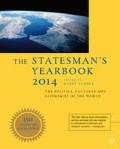Abstract
The Tongatapu group of islands in the south western Pacific Ocean were discovered by Tasman in 1643. The Kingdom of Tonga attained unity under Taufa’ahau Tupou (George I) who became ruler of his native Ha’ apai in 1820, of Vava’u in 1833 and of Tongatapu in 1845. By 1860 the kingdom had converted to Christianity. In 1862 the king granted freedom from arbitrary rule of minor chiefs and extended land rights. These institutional changes, together with the establishment of a parliament of chiefs, paved the way towards a democratic constitution. By the Anglo-German Agreement of 14 Nov. 1899, the Tonga Islands became a British protectorate. The protectorate was dissolved on 4 June 1970 when Tonga, the only ancient kingdom surviving from the pre-European period in Polynesia, achieved independence within the Commonwealth.
Further Reading
Campbell, I. C., Island Kingdom: Tonga, Ancient and Modern. 1994
Wood-Ellem, E., Queen Salote of Tonga, The Story of an Era. 2000
National Statistical Office: Tonga Statistics Department, P. O. Box 149, Nuku’alofa.
Website: http://www.spc.int/prism/Country/to/stats
Editor information
Copyright information
© 2013 Palgrave Macmillan, a division of Macmillan Publishers Limited
About this chapter
Cite this chapter
Turner, B. (2013). Tonga. In: Turner, B. (eds) The Statesman’s Yearbook. The Statesman’s Yearbook. Palgrave Macmillan, London. https://doi.org/10.1007/978-1-349-59643-0_335
Download citation
DOI: https://doi.org/10.1007/978-1-349-59643-0_335
Publisher Name: Palgrave Macmillan, London
Print ISBN: 978-0-230-37769-1
Online ISBN: 978-1-349-59643-0
eBook Packages: Palgrave Political & Intern. Studies CollectionPolitical Science and International Studies (R0)

